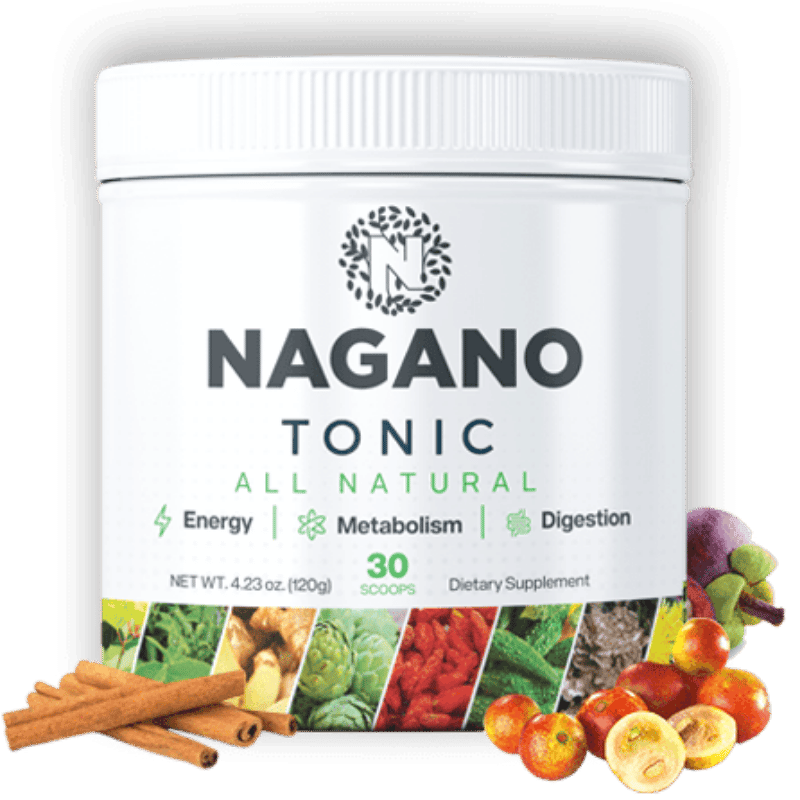Natural Ingredients for Weight Loss

Unveiling Their Health Benefits
Weight loss has become a pressing concern for many in today’s fast-paced world, where lifestyle choices often lead to obesity and related health issues. Recent studies indicate that over 40% of adults in the United States are considered obese, highlighting the urgent need for effective strategies to promote healthy weight management. Understanding the potential of natural ingredients in aiding weight loss can provide a holistic approach to health.
The Science Behind Natural Weight Loss Ingredients
The use of natural ingredients in weight loss has gained traction due to their multifaceted roles in metabolism, appetite regulation, and overall wellness. Here, we delve into several key ingredients that are backed by scientific research:
Camu Camu
Camu camu, a small berry native to the Amazon rainforest, is noted for its exceptionally high vitamin C content and antioxidant properties. Research indicates that the antioxidants in camu camu can help reduce oxidative stress, which may play a role in metabolic regulation and fat metabolism (Katsube et al., 2011).
EGCG (Epigallocatechin Gallate)
EGCG, a compound found in green tea, has been shown to enhance metabolic rate and increase fat oxidation, particularly during exercise. A study by Hursel et al. (2011) showed that green tea extract can facilitate fat loss and improve metabolic health.
Mangosteen
This tropical fruit is rich in xanthones, which have been linked to anti-inflammatory properties and metabolic benefits. A study highlights its potential in regulating glucose levels, which can indirectly influence weight management (Salahuddin et al., 2019).
Panax Ginseng
Traditionally used in Chinese medicine, Panax ginseng may help with weight control by regulating hormones that contribute to appetite and metabolism. It has also been associated with increased energy levels and greater exercise performance (Reay et al., 2005).
Momordica Charantia (Bitter Melon)
Bitter melon has been found to influence glucose metabolism and has properties that may assist in weight management. Research suggests that it can help suppress body weight gain in models of obesity by enhancing insulin sensitivity (Cai et al., 2015).
Ashwagandha
This adaptogen may support weight loss by reducing stress levels, which can directly impact weight gain. High levels of the stress hormone cortisol are often associated with weight gain, and ashwagandha can help lower cortisol levels, aiding in weight management (Chandrasekhar et al., 2012).
Acerola
Acerola cherries are not only rich in vitamin C but also contain antioxidants that combat oxidative stress. Their anti-inflammatory properties may aid in metabolic processes necessary for healthy weight loss (Cai et al., 2016).
Eleuthero Root
Known for its adaptogenic properties, eleuthero root can aid in stress reduction and support energy balance, potentially mitigating weight gain associated with chronic stress (Kennedy et al., 2001).
Alfalfa Leaf
Alfalfa is rich in fiber and nutrients that may help reduce appetite and promote digestive health, factors that can contribute positively to weight loss (Fujita et al., 1991).
Cinnamon Cassia
Cinnamon has shown promise in modulating blood sugar levels and improving insulin sensitivity, which can help maintain a healthy weight (Zhao et al., 2006).
Ginger
Ginger is known for its thermogenic properties, which can enhance calorie burning and contribute to weight loss. A study revealed that ginger consumption can significantly reduce body weight and waist-to-hip ratio (Bae & Kim, 2012).
Inulin
As a soluble fiber, inulin promotes a feeling of fullness and supports gut health, which can be beneficial for weight management (Slavin, 2013).
Proprietary Blend of 8 Super Antioxidants
- Barley Grass
- Spinach
- Blueberry
- Asparagus
- Cranberry
- Pomegranate
- Broccoli
- Spirulina
This blend provides a rich source of antioxidants and nutrients that support overall health and metabolic function, further enhancing weight loss efforts (Rao et al., 2012).
Conclusion
Natural ingredients can play a significant role in supporting weight loss through their various mechanisms, including metabolic enhancement, appetite regulation, and stress reduction. By understanding the science behind these ingredients, we can make informed choices to fuel our bodies naturally. Explore solutions that align with your weight loss goals, as nature often holds the key to our modern health challenges.
Check out Nutrapurely’s resources and product reviews to discover how you can embrace natural approaches to achieve your health and wellness desires. Your health, redefined by nature.
Related Products

References
- Katsube, T., et al. (2011). Antioxidant activity of camu camu. Jpn. Soc. Food Sci. Technol.
- Hursel, R., et al. (2011). The effects of green tea on weight loss and weight maintenance: a meta-analysis. International Journal of Obesity.
- Salahuddin, S., et al. (2019). Health Benefits of Mangosteen: A Review. Journal of Medicinal Food.
- Reay, J.L., et al. (2005). Panax ginseng and its role in weight management. Journal of Nutrition.
- Cai, H., et al. (2015). Clinical efficacy of bitter melon for diabetes control: a systematic review. Nutrition Research Reviews.
- Chandrasekhar, K., et al. (2012). A dual study of ashwagandha on stress and anxiety. Indian Journal of Psychiatry.
- Fujita, Y., et al. (1991). The role of alfalfa in plant-based protein diets. Advances in Medical Sciences.
- Zhao, L., et al. (2006). Cinnamon extract improves insulin sensitivity in diabetic patients. Diabetes Care.
- Bae, J.J., & Kim, S. (2012). Effects of ginger on obesity. Journal of Food Science.
- Slavin, J.L. (2013). Fiber and prebiotics: Mechanisms and health benefits. Nutrients.
- Rao, A.V., et al. (2012). Antioxidant and anti-inflammatory effects of pomegranate. Journal of Medicinal Food.
